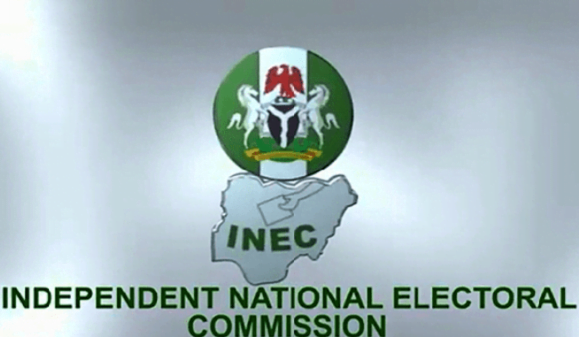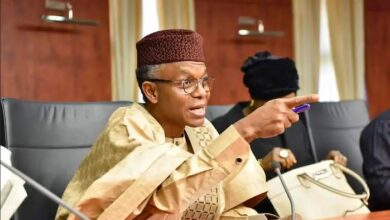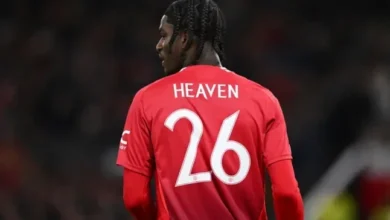Ogbe-Ijoh backs INEC’s wards delineation amid protests |

The Ogbe-Ijoh (Ijaw) people in Warri South Local Government Area of Delta State have affirmed their electoral rights in a resolute response to ongoing protests from the Itsekiri people regarding the Independent National Electoral Commission’s ward delineation proposal for the area.
The people spoke through some of their prominent leaders at a news conference at the Ogbokone town hall in Warri South LGA.
Prominent leaders such as Hon. Denbo-Denbofa Oweikpodor, Chief M. Keme, and Comrade Moses Fiyebor addressed the media, emphasising their historical and legal entitlements to representation in the Warri South council.
The community’s concerns arose following INEC’s fieldwork report issued on April 4, 2025, which recommended new electoral boundaries.
Since then, the Ogbe-Ijoh community has witnessed persistent protests from Itsekiri supporters agitating for their exclusion from Warri South.
In the press conference statement read by Oweikpodor, the leaders countered the Itsekiri claims by reminding stakeholders of previous INEC meetings that acknowledged the pivotal role played by Ogbe-Ijoh within the local government structure.
“Our community has a long-standing history and rightful claim to representation… the recent protests seem to undermine that,” Oweikpodor asserted.
He brought attention to a Supreme Court ruling from December 2022, which advocates for re-examining electoral delineations to ensure fair representation for all communities.
Furthermore, the leaders emphasised that the Ogbe-Ijoh community is historically recognised as the first settlement in Warri Urban, with their existence documented since the establishment of the Warri Urban District Council in 1955.
This initial council had integrated Ogbe-Ijoh alongside segments of Urhobo and Itsekiri populations.
To dispel misinformation propagated by Itsekiri representatives, the leaders reiterated that traditional laws have always clearly delineated land ownership between the two communities, affirming that Ogbe-Ijoh lands have never been intended to fall under Itsekiri claims.
He said: For historical purposes and to educate younger Itsekiri who may not know the founding history of Warri, Ogbe-Ijoh is recorded as the first settlement along the Ogbe-Ijoh-Warri River, which constitutes the Warri South Local Government Area.
“Our community was integrated into local governance structures as early as 1955, when electoral delineations were first enacted.”
The leaders called attention to relevant legislations such as the Chiefs Law of 1957, which expressly excluded Ogbe-Ijoh areas from the authority of the Itsekiri monarch, the Olu of Warri.
They also referred to the 1979 Bendel State Traditional Rulers and Chiefs Edict, which recognised the Amaokosu of Ogbe-Ijoh as the designated authority over Ogbe-Ijoh lands and peoples in Warri.
The statement reads: “For historical purposes and to educate younger Itsekiri people who do not know the founding history of Warri, Ogbe-Ijoh is recorded as the first settlement in the present Warri Urban along the Ogbe-Ijoh-Warri River (otherwise known as the Warri anchorage) in Warri South Local Government Area of Delta State.
“Indeed, the present Warri started from Ogbe-Ijoh. In 1955, when the first local administrative structure was established and electoral delineation done in Warri Urban, the Ogbe-Ijoh (Ijaw) people were included in the Warri Urban District Council together with a section of Urhobo and Itsekiri as defined by Western Region Laws of Nigeria No 177 of 1955.
“The said law created four autonomous electoral wards for the Ijaw people of Ogbe-Ijoh, which were – Alders town B3, Ogbe-Ijoh Ward C1, Ogbe-Ijoh Ward C2 and Government Area F1.
“This structure with elected Ogbe-Ijoh Councillors remained operational till sometime in 1976, when Olusegun Obasanjo’s Military Government introduced local Government reforms giving birth to the present local Government structure.
“The defunct Warri Urban District Council is today known as the Warri South Local Government Council.
“We wish to state further that, contrary to the false impression created by the Itsekiris, the Ijaw areas have always been separated from the Itsekiri areas in Warri Urban.
“It is for this reason that, the Chiefs Law of 1957, CAP 19, provides that, the authority of the Itsekiri monarch, the Olu of Warri excludes Ogbe-Ijoh Areas.
“The 1979 Bendel State Traditional Rulers and Chiefs Edict, B.S.L.N 44, described the Amaokosu of Ogbe-Ijoh as the prescribed authority of Ogbe-Ijoh lands and people in Warri metropolis.
“This meant that all the lands of the Ijaw of Ogbe-Ijoh were excluded from claims by the Itsekiri people.”
While commending INEC for being able to commence the delineation process despite a series of litigation against the commission, they called on the electoral umpire to ensure that the current delineation reflects the historical boundaries and ensure that “our community receives adequate representation in the Warri South LGA.
“The Ogbe-Ijoh people state that their areas should have been delineated into at least five homogenous electoral wards. If the Ogbe-Ijoh people had four electoral wards as far back as 1955, it is only fair for the number to be increased decades after.”
While commending INEC for initiating the ward delineation process despite numerous conflicts, the Ogbe-Ijoh leaders urged the commission to ensure that newly proposed boundaries reflect historical realities and provide adequate representation for their community in Warri South.
They argued the necessity for more electoral wards, asserting that if Ogbe-Ijoh was entitled to four electoral wards in 1955, increasing their representation is only fair considering demographic growth.
“We therefore call for the creation of additional electoral wards for the Ijaws in Warri Urban, and we urge INEC to reject unfounded protests against the delineation from the Itsekiri,” they insisted.
Meanwhile, INEC has stated through its National Commissioner, Sam Olumekun, that it has not yet made a final decision regarding the delineation of wards in the Warri Federal Constituency.
Olumekun appealed to all involved parties to maintain peace and refrain from any actions threatening the area’s stability.
The Ogbe-Ijoh people, however, reiterated their commitment to engaging with all ethnic groups in Warri while advocating for their rights and ensuring meaningful representation in the local government structure.
Post Views: 11






